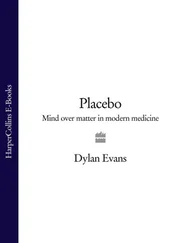James Walsh - Makers of Modern Medicine
Здесь есть возможность читать онлайн «James Walsh - Makers of Modern Medicine» — ознакомительный отрывок электронной книги совершенно бесплатно, а после прочтения отрывка купить полную версию. В некоторых случаях можно слушать аудио, скачать через торрент в формате fb2 и присутствует краткое содержание. Жанр: foreign_prose, Медицина, foreign_antique, на английском языке. Описание произведения, (предисловие) а так же отзывы посетителей доступны на портале библиотеки ЛибКат.
- Название:Makers of Modern Medicine
- Автор:
- Жанр:
- Год:неизвестен
- ISBN:нет данных
- Рейтинг книги:3 / 5. Голосов: 1
-
Избранное:Добавить в избранное
- Отзывы:
-
Ваша оценка:
- 60
- 1
- 2
- 3
- 4
- 5
Makers of Modern Medicine: краткое содержание, описание и аннотация
Предлагаем к чтению аннотацию, описание, краткое содержание или предисловие (зависит от того, что написал сам автор книги «Makers of Modern Medicine»). Если вы не нашли необходимую информацию о книге — напишите в комментариях, мы постараемся отыскать её.
Makers of Modern Medicine — читать онлайн ознакомительный отрывок
Ниже представлен текст книги, разбитый по страницам. Система сохранения места последней прочитанной страницы, позволяет с удобством читать онлайн бесплатно книгу «Makers of Modern Medicine», без необходимости каждый раз заново искать на чём Вы остановились. Поставьте закладку, и сможете в любой момент перейти на страницу, на которой закончили чтение.
Интервал:
Закладка:
It is not surprising then that Corvisart's pupil Laennec should have appreciated very thoroughly the value of Auenbrugger's discovery. In the preface of his book on Mediate Auscultation, Laennec bewails the fact that men are generally neglectful of discoveries made in their own time, and fail to give them the attention they deserve. He attributes this neglect rather to the well-known carelessness of men than to any deliberate failure to recognize the merit of contemporary work. He says:
"Lack of attention is an extremely common failing of all men. What it takes years and hard labor to acquire, is not infrequently passed over without notice. Auenbrugger's method, published some fifty years ago, though capable of being learned in a few days, and without difficulty, and of being put into practice without the use of any instruments, although snatched from oblivion by my illustrious preceptor, Professor Corvisart, and made clearer than it had been left even by the author himself, is not as yet in ordinary use among physicians. Even the wonderful invention of the illustrious Jenner, though received with so much praise, and with regard to whose efficaciousness numberless confirmatory observations have been made, is already somewhat less prominent in the minds of men than it should be, or at least it would be, only for the fact that the governments of many countries, provinces and cities, the foresight of the clergy, of the authorities of all kinds, and the advice of the best physicians have exerted all their influence to keep it at public expense constantly in practice."
After about ten years of service at the Spanish military hospital, Auenbrugger resigned his position there and took up private practice. In this he was eminently successful, being, as might be expected, especially in demand for cases involving affections of the thorax. His practice appears to have been to a great extent among the better class of people, but he seems never to have neglected the poorer patients whom he had come to know during his hospital experience. There are traditions in Vienna of his unfailing willingness to assist the poor and even to put himself to considerable inconvenience in order to be of service to them.
Tradition tells that he was very conscientious in the pursuit of his vocation as a physician, and among the family relics there is preserved a small lantern which he kept always by his bedside, to light him on his visits to the sick when called out at night. It must not be forgotten that city streets were not regularly lighted at the end of the eighteenth century, and night calls even in city work must have been a source of great annoyance and discomfort. There is a family tradition, too, that the night bell at his house was connected directly with Auenbrugger's room, so that the others of the household might not be disturbed when night callers came for him. Every tradition points to him as a man among men in his unselfish readiness to save others trouble, and do all the good in his power.
Auenbrugger was, according to well-grounded traditions, especially admirable in his relations toward other members of the medical profession. This may not seem a very significant sign of amiability to those outside the profession, but it is well recognized that even great physicians have not always been known to get on well with brother practitioners. Auenbrugger has, besides, the pleasant reputation of having been of great material assistance to a number of needy medical students during the time of their university careers, and to have frequently lent a helping hand to young practitioners in the city, who probably found it quite as discouraging, beginning practice in those days, as any of their young confreres of this generation find it at the present time.
To physicians and medical students when ill, Auenbrugger was almost unceasing in attention. Two or three physicians of the generation immediately after his attributed to his unselfish care and devotion to them their recovery from what would otherwise have been mortal illnesses. In this way Auenbrugger seems to have been a man whom everyone who came to know him, even slightly, learned to love and respect. His relations to his family and relatives were always of the most happy, kind character, and family traditions show that his fatherly care was befittingly returned to him in his old age. The number of his friends was very great, and he counted among them some of the most distinguished inhabitants of the Austrian capital.
Notwithstanding his devotion to his practice, Auenbrugger did not cease to make observations that occasionally he considered worthy of being committed to paper. He was especially careful in the study of his cases, and left fully written records of over 400 important cases that he had studied very faithfully. His attention seems to have been attracted particularly to certain mental diseases. This work was done half a century before even the first beginnings of the modern classifications of mental diseases were attempted. He wrote a short article with regard to mania and its treatment, and a longer article on melancholia. How well he recognized the essential feature of this latter affection and the main symptom that must be guarded against, can be gathered very well from the title of his paper, which he called "The Still Madness, or the Impulse to Self-Murder."
It is about the time that he was engaged in the study of melancholia, perhaps as a contrast to sadder things, that he wrote a comic opera, of which we shall have more to say presently. His description of the conditions that he saw during an epidemic of dysentery that occurred in Vienna show how exact and careful a clinical observer he could be, and that the demands of his practice did not absorb all his attention to the detriment of his faculty for observation. He seems himself to have suffered from a severe attack of typhus fever which raged epidemically in Vienna in 1798.
Auenbrugger had a wide circle of interests beyond the subject of medicine. There is a family tradition that he had a magnificent library. He seems with true Viennese spirit to have been a great devotee of the opera, and to have had an especial liking for music. He wrote the text, score, and libretto of a comic opera with the title, "The Chimney Sweep." This operetta evidently enjoyed more than a succes d'estime , and further writing in this line was confidently expected from him by his friends. There is even a story to the effect that the Empress Maria Theresa, of whom he was an intimate friend, and who made use, it is said, of his counsel in political matters more than once, asked him why he did not follow up his first success in operatic writing. His blunt reply shows how intimate must have been his relations with the great empress. He said he had things much better with which to occupy himself than the writing of comic operas.
Seeing that he was so favored at court, it is not surprising to find the family tradition that Auenbrugger was associated with many of the most prominent persons in the Austrian capital during his lifetime. He was a special friend of and spent a great deal of time with the famous philosopher, Werner. As he grew older he delighted especially in music, and spent many hours at the house of Baron Zois, where many of the distinguished European musicians were to be found and where famous matinee concerts were given every Sunday from twelve to two. The day and the time may seem strange to foreigners, but Vienna still has concerts at this time on Sunday, and after the Viennese have gone to Mass in the morning they think that they could not occupy themselves better than with listening to good music in the middle of the day.
Toward the end of his life, Auenbrugger lived during the summer time in the suburb of Rossau and cultivated a little garden, taking the greatest pleasure in spending his time at this simple occupation. It is a source of satisfaction to find that though Auenbrugger's medical work failed during his life to attract the attention it deserved, he had his reward, for his patient investigations in earlier life, in a peaceful and contented ending to a career that had been so worthy of what was best in the man. He lived to celebrate his golden wedding in 1804 and was especially happy in the almost constant companionship of the good wife who had proved so faithful a helpmate during her long life. After her death, which took place the year following the celebration of their jubilee, his vitality and his contentment with life seemed to abandon him. He was a changed man and kept himself for the most part to his room. He went to bed very early and did not care to see anyone but his near relatives. His last illness was the result of a cold, and his advanced age, eighty-seven, left him little resistive vitality. He retained his consciousness until the very end, and said the day before his death that the next day would be his last.
Читать дальшеИнтервал:
Закладка:
Похожие книги на «Makers of Modern Medicine»
Представляем Вашему вниманию похожие книги на «Makers of Modern Medicine» списком для выбора. Мы отобрали схожую по названию и смыслу литературу в надежде предоставить читателям больше вариантов отыскать новые, интересные, ещё непрочитанные произведения.
Обсуждение, отзывы о книге «Makers of Modern Medicine» и просто собственные мнения читателей. Оставьте ваши комментарии, напишите, что Вы думаете о произведении, его смысле или главных героях. Укажите что конкретно понравилось, а что нет, и почему Вы так считаете.












